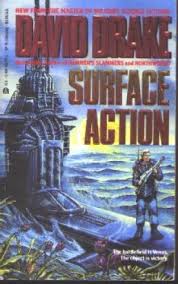In an attempt to secure a blurb from Elon Musk about the upcoming book STEP FURTHER OUT due in May from the Jerry Pournelle Estate at ChaosManor, we are reminding the markets, NASA and the space industry that colonizing Venus makes much more sense. Until Elon Musk tweets something positive about STEP FURTHER OUT , we will hold the Space-X STARSHIP MARS PROJECT hostage from these pages.
Further, the Pournelle family is embargoing the sale of BIRTH OF FIRE (set on a colonized Mars) from Amazon until Jeff Bezos comments publicly on STEP FURTHER OUT.

Colonization of other planets is a common theme in science fiction.
In actually picking the right one, it might be best to consult the experts…
Extraterrestrial colonization is not a program undertaken lightly. As suggested in the 1977 edition of A Step Farther Out, Jerry Pournelle and Larry Niven propose that the need for a space frontier and the potential safety for humans as a species will lead us to the conclusion that colonization will have to happen. But they never said Mars had to be the first off-planet colony.
That’s not to suggest Mars wasn’t considered. Jerry Pournelle wrote BIRTH OF FIRE in 1976 and later sold the movie right option to James Cameron for the movie AVATAR.
BIRTH OF FIRE starts out in a year sometime between 2000 and 2050. It is a science fiction adventure novel about the Martian War of Independence as the Mars Colonies attempt to break away from the Earth Federation Government. In Birth of Fire, Garrett Pittston is a member of a Baltimore street gang when he is arrested and sentenced as an involuntary colonist. He must learn to live in the harsh conditions of Mars, and learn the customs of the Mars RimRat culture. He finds himself at the center of the Independence movement although he had never intended to join. Now he must prove himself to be a Marsman. In the story Garret finds the colony on Mars to have conditions that are rough and the pay unfair. No one suggests Garret works in these poor conditions for a company like Space-X, but did those in charge just pick the wrong planet to colonize from the beginning?
Again some planet colonization techniques are disturbingly simple and possible today, but without the potential for great success. Some techniques may be possible in just a few years. THE MARTIAN by Andy Weir made it seem simple to colonize Mars. But if you were going to colonize a planet like a modern day Columbus, wouldn’t you consider something 50% closer to be a safer investment? 
The most realistic technique for colonizing our Solar System comes from Stephen Baxter’s novel “Titan” (1997). Using a single US Space Shuttle, two old Apollo command modules, and some additional equipment cobbled together, five scientists travel to Saturn’s largest moon, Titan. While not the safest or most effective method for colonizing another world, it does have the advantage of being feasible right now.
Another nearby colonization effort is described in David Drake’s novel “Surface Action” (1990). He describes a technique for colonizing Venus by terraforming it. Using small asteroids and comets, the atmosphere of Venus is altered and seeded with Earthly life (bacteria, algae, etc.). Jerry Pournelle also advocated terraforming Venus with catalysts and genetically engineered forms as late as August 2015 in ChaosManor.
A novel that deals exclusively with colonization and the problems that could be faced by colonists is “Legacy of Heorot” (1987) by Larry Niven, Jerry Pournelle, and Steven Barnes. There are detailed descriptions and logical reasoning for the equipment and techniques used by the colonists.
Mr. Musk and Mr. Bezos should take a moment to acknowledge who first influenced their decisions to seek colonies on other planets and to exploit those resources for their own gains.
It’s not like you’ll pay royalties on a good idea. Just acknowledgement is all we seek. And hey, a tweet from you guys would sell a lot of books!
https://twitter.com/PournelleJerry